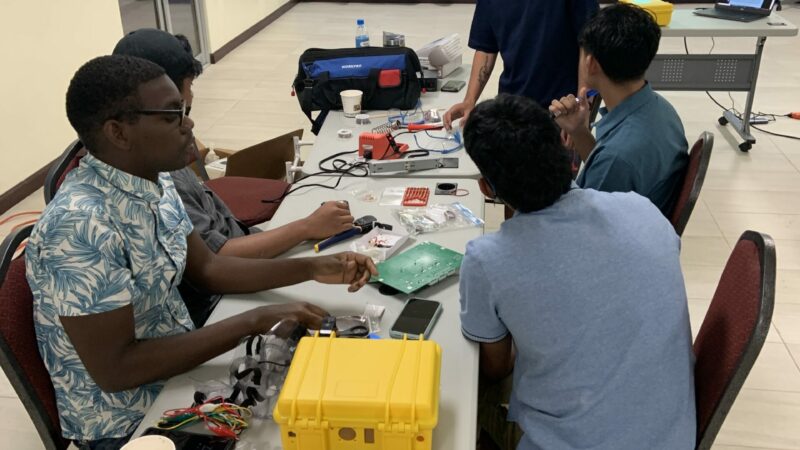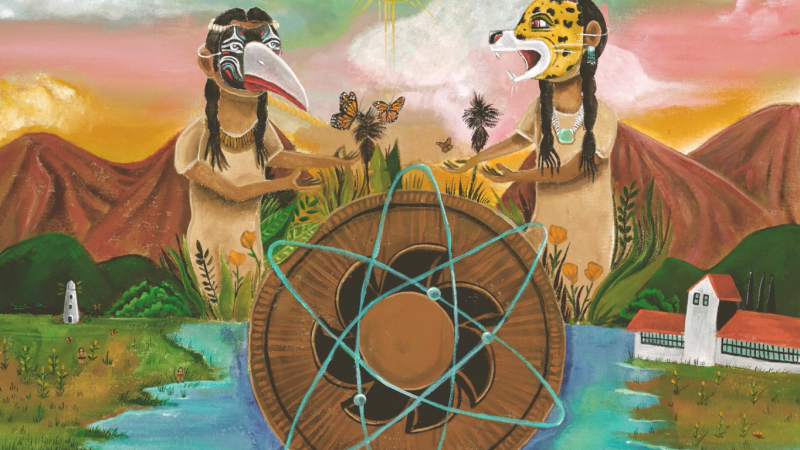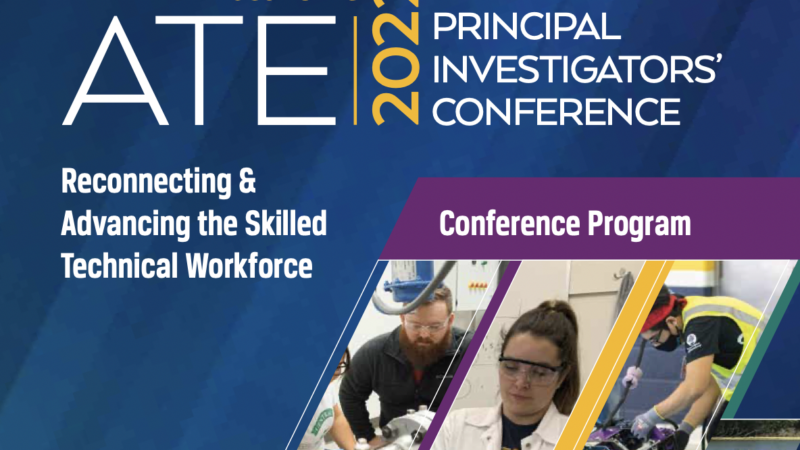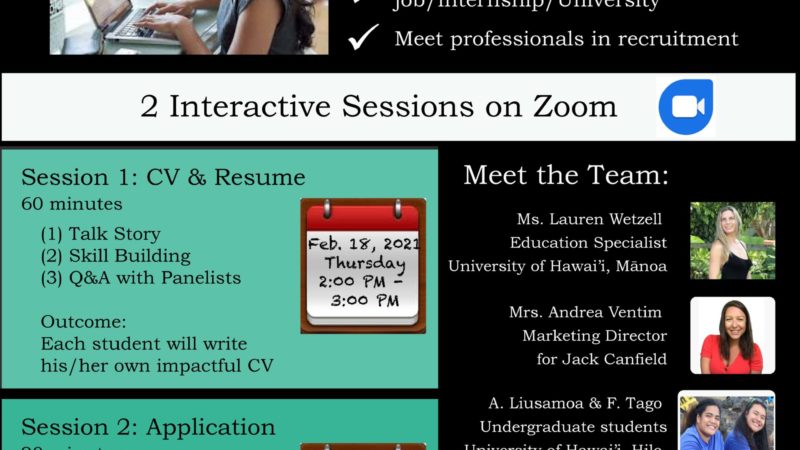
2022 NSF ATE Footlocker Workshop held in Palau
One of the key goals of our grant project is to provide access to quality education to our students that aligns with current workforce needs and skills. We work with a wide variety of sectors and cultivate partnerships to provide unique opportunities for our students and facilitate their advancement in environmental technical careers. Each grant project focuses on a new technology for faculty to integrate into their curriculum and/or students to apply in their independent research projects. The faculty and select students meet for training on the new technology and learn how to integrate it into their curriculum and outreach programs. The hands-on training is combined with field applications which help build the participants’ confidence in using the technology. At the end of the workshop, the faculty pack the equipment and supportive resources, and return with it to their home institution for direct application into their marine and environmental science programs. This approach has been termed “Footlocker workshop”.
The past footlocker workshops have focused on technologies such as PCR methods, YSI Sonde water quality probes, hobo light and temperature loggers and nutrient test kits, iSami-pH sensors, and underwater remotely operated vehicles (ROVs). The footlocker workshop for this grant project had been delayed two-years due to the global impacts of the COVID-19 pandemic. However, last week we held our footlocker workshop in Koror, Palau, at the Palau International Coral Reef Center, PICRC. Seventeen participants attended the event, face to face, and two participants observed virtually. The following topics were covered, how to build the Tiggerfish ROV and strategies for discussing climate change impacts on coral reefs. Vincent Jagon lead the ROV training and was assisted by Raijeli Toanivere, Marine Science Instructor at ASCC. Both Mr. Jagon and Ms. Toanivere were recent former graduates of ASCC’s marine science program. Dr. Robert “Bob” Richmond, Principal Investigator for the NSF ATE grant project and Director of the Kewalo Marine Laboratory at the University of Hawaii, led the coral reef and climate discussions.
The footlocker workshop was in partnership with the MATE program and the content followed that of their training programs for their Triggerfish, ROV. All our marine/environmental science faculty served on this grant attended the workshop including Peltin Pelep, College of Micronesia-FSM (COM-FSM), Kendal Romany, College of the Marshal Islands (CMI), Denise Myers, Northern Marianas College (NMC), and Vernice Yuzi, Palau Community College (PCC). Mrs. Yuzi and Ms. Myers brought several students to attend the training as well. The group learned and practiced in building the controller for the Triggerfish ROV, the most challenging part of the exercise. Over the next few months, the group will continue building their ROV with the goal of getting it operational in the water. A few of the marine technical industry transferable skills students learned and will learn include piloting the ROV, performing maintenance repairs on electronics and/or hydraulics, maintaining communications, basic rigging, and designing, building and interfacing electrical systems. The importance of marine technology continues to grow as the use of ROVs has rapidly changed from the military to research and business sectors. According to Michel (n.d.), “The need for highly qualified technical professionals who can design, build, operate, and maintain this technology has never been greater” (p. 2). And, with supported funding from the NSF ATE and partnerships with organizations like MATE, we are able to equip our students to be competitive in these fields.
Reference: Michel, D. (n.d.) ROV technicians. Knowledge and Skill Guidelines for Marine Science and Technology, 33. 1-16. [Brochure]


